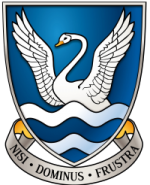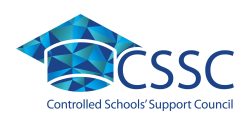 ICT
ICT
Aims
- To develop pupil’s knowledge, about the nature and range of ICT tools and the ways in which such tools can integrate with one another.
- To develop the skills to select ICT tools appropriate to a variety of contexts and tasks to employ them effectively.
- To read and understand information, present ideas and formulate questions.
Staffing
Mrs Heron (Head of Department)
Mr Haylett
Mrs Irvine
Mrs Martin
Mr Gould (Technician)
Subject Overview
Young people will use Information and Communications Technology (ICT) skills throughout their lives — in commerce and industry, in science and research, in entertainment and leisure pursuits.
In Glenlola Collegiate, ICT forms a vital part of every pupil’s developing knowledge, understanding and experience. Pupils get the opportunity and support to acquire and develop the skills necessary to become informed and responsible users of ICT.
Pupils gain understanding of how to use the 5 areas within ICT:
Explore is about looking for, finding, choosing and using information, as well as using digital tools to investigate and solve problems.
Express is about pupils being creative and developing and presenting their ideas using text, sound, music and still or moving images. It ranges from pupils using simple text, sound or pictures to producing multimedia.
Exchange is about pupils collaborating with others online to share and develop their ideas using safe and acceptable online behaviour.
Evaluate is about pupils reflecting on their process and outcome. They think about how they carried out a task and how they might improve on what they did.
Exhibit is about pupils managing and showcasing their work digitally. It ranges from printing and saving their work to organising and maintaining personalised digital areas.
Digital technology incorporates aspects of computer science and information technology. It explores how we can use technology to create, store, process, analyse and present information in a digital context. This includes computer architecture, networks, web technology, digital media, programming tools and software applications.
At Glenlola Collegiate School all pupils study ICT in Years 8 and 9 at Key Stage 3. Pupils can then choose to study Digital Technology at GCSE level. Digital Technology is also taught at AS and A2 level.
Key Stage 3
Pupils in years 8 study ICT for 1 hour each week. Year 9 pupils study ICT every other week for 1 hour. The programme allows pupils to experience and develop skills in many ICT areas including desk top publishing, multimedia, programming and e-safety.
To further develop ICT skills, the Glenlola Coding Club runs one afternoon per week.
Key Stage 4
Pupils in years 11 and 12 follow the requirements for the CCEA GCSE Digital Technology (Multimedia) specification. The course is divided into three units.
- Unit 1: Digital Technology – Pupils explore a range of digital technologies available for data storage, manipulation,
presentation and transfer. They also evaluate the importance of data security and data legislation.
- Unit 2: Digital Authoring Concepts – Pupils gain an understanding of the concepts in the development of digital systems.
- Unit 3: Digital Authoring Practice – Pupils design, develop and test multimedia systems.
Pupils must:
- demonstrate knowledge and understanding of the concepts, characteristics, components and functions of digital technology
- apply knowledge and understanding of digital technology to investigate and analyse problems and propose solutions
- design, develop and evaluate solutions to solve problems, making reasoned judgements and presenting conclusions
Key Stage 5
New technologies, networks and services are transforming the way we communicate with each other, how we work and the way we learn. GCE Digital Technology gives students opportunities to develop advanced skills in a range of development environments and apply these to relevant work-related scenarios.
At A Level we aim pupils to:
- develop a genuine interest in digital technology
- gain an understanding of the systems development process
- gain an awareness of a range of technologies and an appreciation of the potential impact these may have on individuals, organisations and society
- participate in developing an application while adhering to the systems development process
- develop an understanding of the consequences of using digital technology on individuals, organisations and society, and of social, legal, ethical and other considerations of using digital technology
- apply their skills to relevant work-related scenarios
- carry out research and development, and present their findings in different formats
- develop advanced study skills that help them prepare for third level education
- demonstrate that they understand and can apply key concepts through internal and external assessments
We follow the CCEA Technology and Design specification, studying:
AS Level
- Unit AS 1: Approaches to System Development: This unit explores approaches to the development of complex digital technology systems, the key stages in the process and the outputs produced. The other three units build on this one.
- Unit AS 2: Fundamentals of Digital Technology: In this unit students develop knowledge and understanding of the fundamentals of any digital technology system, such as data representation, computer architecture, software and the user interface. This also provides a foundation for progression to A2.
A2 Level
- Unit A2 1: Information Systems: This unit leads on from AS 2 and provides knowledge and understanding of concepts such as computer networks, databases, mobile technologies, cloud computing, legislation, and moral and ethical issues.
- Unit A2 2: Application Development (Case Study): This unit allows students to apply their skills, knowledge and understanding to develop an application that solves a problem for a specified client. This unit can be taught alongside
- Unit A2 1: Information Systems, allowing students to work over an extended period.
http://www.rewardinglearning.org.uk/microsites/digital_technology/gce/
Career Opportunities
Studying Digital Technology, in today’s technological world, is an important and worthwhile qualification. There are opportunities for IT and computing graduates across all industries, including retail, financial services, telecommunications, broadcast media, digital media, manufacturing, transport, tourism, the public sector and healthcare – with strong growth and demand in cyber security, mobile development, cloud computing and the management of big data. Entry requirements range from GCSE to degree level.




